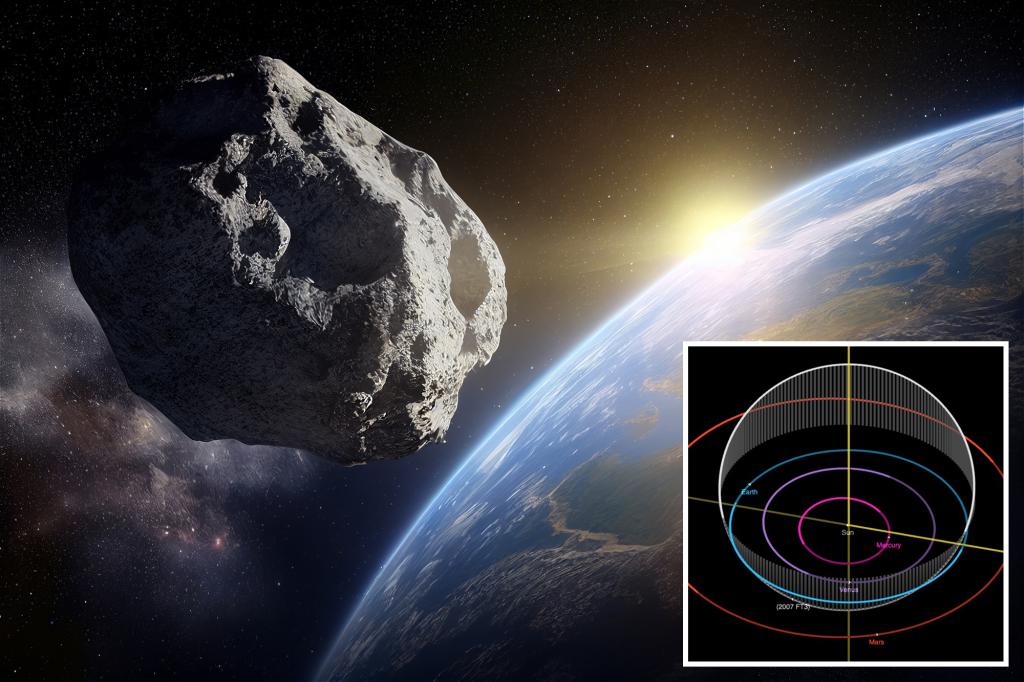Crisis can be avoided!
A “missing” 54-million-ton asteroid large enough to destroy an area of the planet will not hit Earth in 2024, NASA says.
The US space agency released the good news after Britain’s BG News published a report claiming there was a 1 in 10 million chance of FT3 2007 hitting the planet on March 3 and a 1 in 11.5 million chance of an Oct. 5 collision.
The 328-yard asteroid was first spotted in 2007 before disappearing from astronomers’ telescopes, but scientists have still been able to gather enough information to calculate the risk of 89 potential impacts with Earth this year, according to NASA data.
As the potential collision date approaches, officials explained in a statement to The Standard that “there is no known asteroid impact threat to Earth at any time in the next century.
“Nasa and its partners diligently watch the skies to find, track, and categorize asteroids and near-Earth objects (NEOs), including those that may come close to Earth,” a spokesperson said.
The 2007 FT3 space rock remains unknown, which is good news because if it was hurtling toward the planet, NASA would be aware.
 Map showing the predicted orbit of asteroid 2007 FT3 from NASA’s Jet Propulsion Laboratory. NASA’s Jet Propulsion Laboratory
Map showing the predicted orbit of asteroid 2007 FT3 from NASA’s Jet Propulsion Laboratory. NASA’s Jet Propulsion Laboratory
“An important note here is that planetary scientists define an asteroid approach that comes within 30 million miles of Earth’s orbit as a close approach,” the statement continued.
The missing asteroid is much smaller than the 10-mile-wide Chicxulub asteroid credited with causing the devastating impact believed to have wiped out the dinosaurs when it slammed into Mexico’s Yucatan peninsula 66 million years ago, but it would have been large enough to cause regional devastation.
However, there is a 1 in 2,700 chance that Bennu, a small near-Earth asteroid, will collide with Earth in 2182, if it passes through a “gravitational keyhole” in 2135, according to NASA.
The National Aeronautics and Space Administration is collecting samples from 4.5 billion-year-old carbon-rich space rocks in an effort to help scientists unlock the secrets of the origins of life on Earth.
 Asteroid 2007 FT3 is large enough to destroy an area of Earth if there was an impact, which NASA has ruled out. Stoltenberg Studio – stock.adobe.com
Asteroid 2007 FT3 is large enough to destroy an area of Earth if there was an impact, which NASA has ruled out. Stoltenberg Studio – stock.adobe.com
In 2022, NASA successfully slams a spacecraft into an asteroid at 15,000 miles per hour in a test run to prepare to deflect a massive space rock that actually threatens Earth, a scenario that hilariously goes awry in the 2021 sci-fi satire “Don’t Look Upward.”
Categories: Trending
Source: thtrangdai.edu.vn/en/




